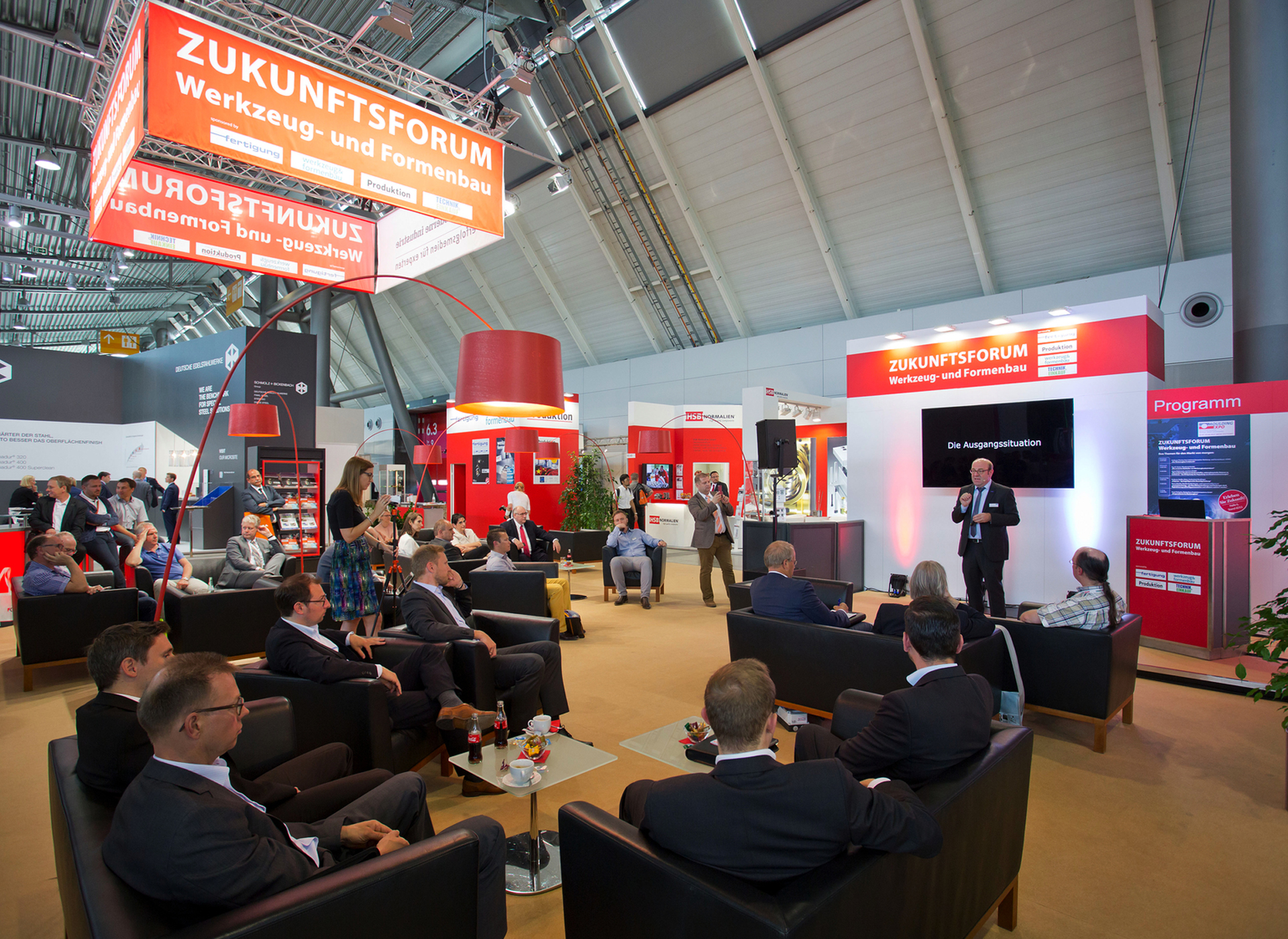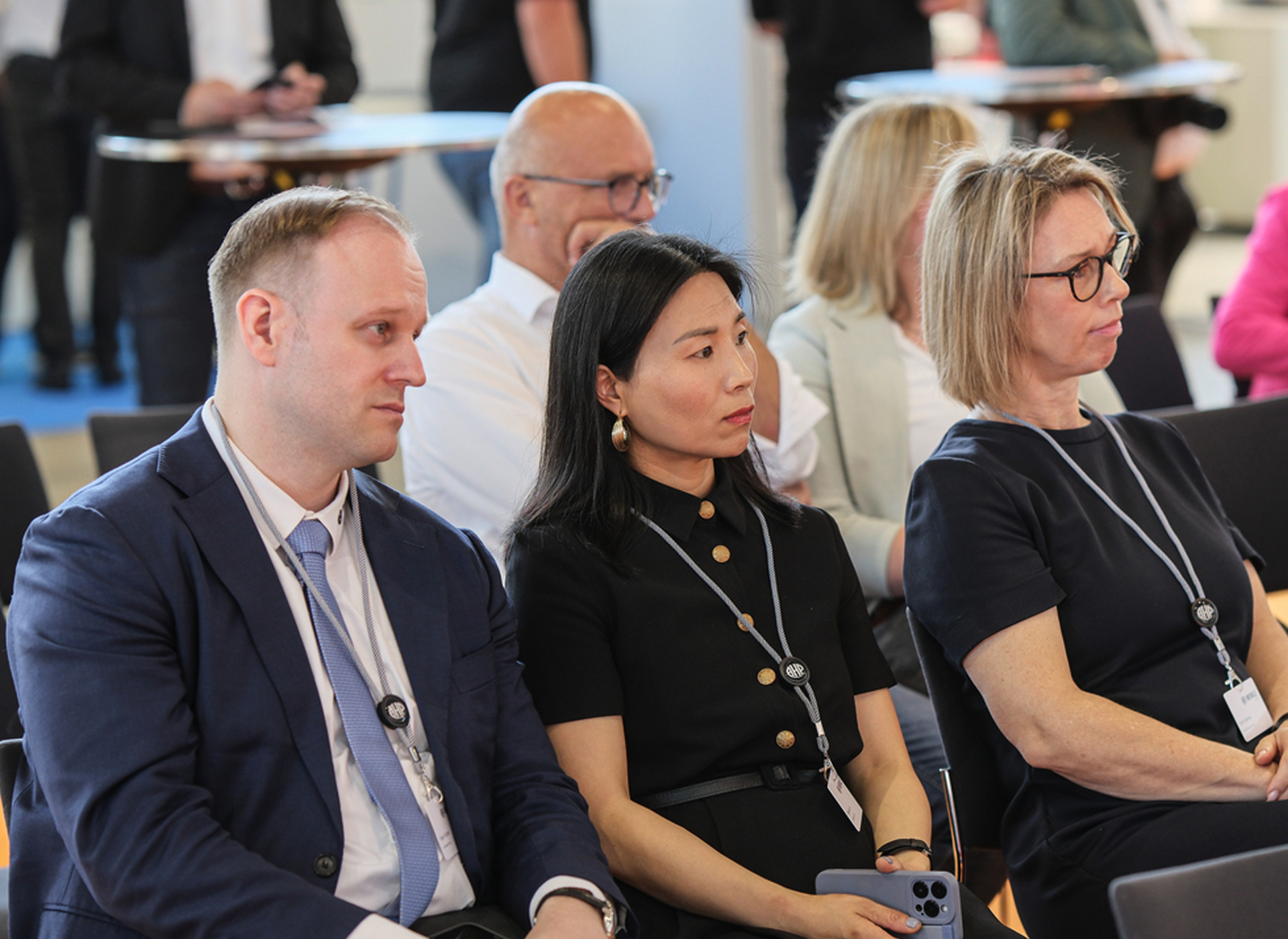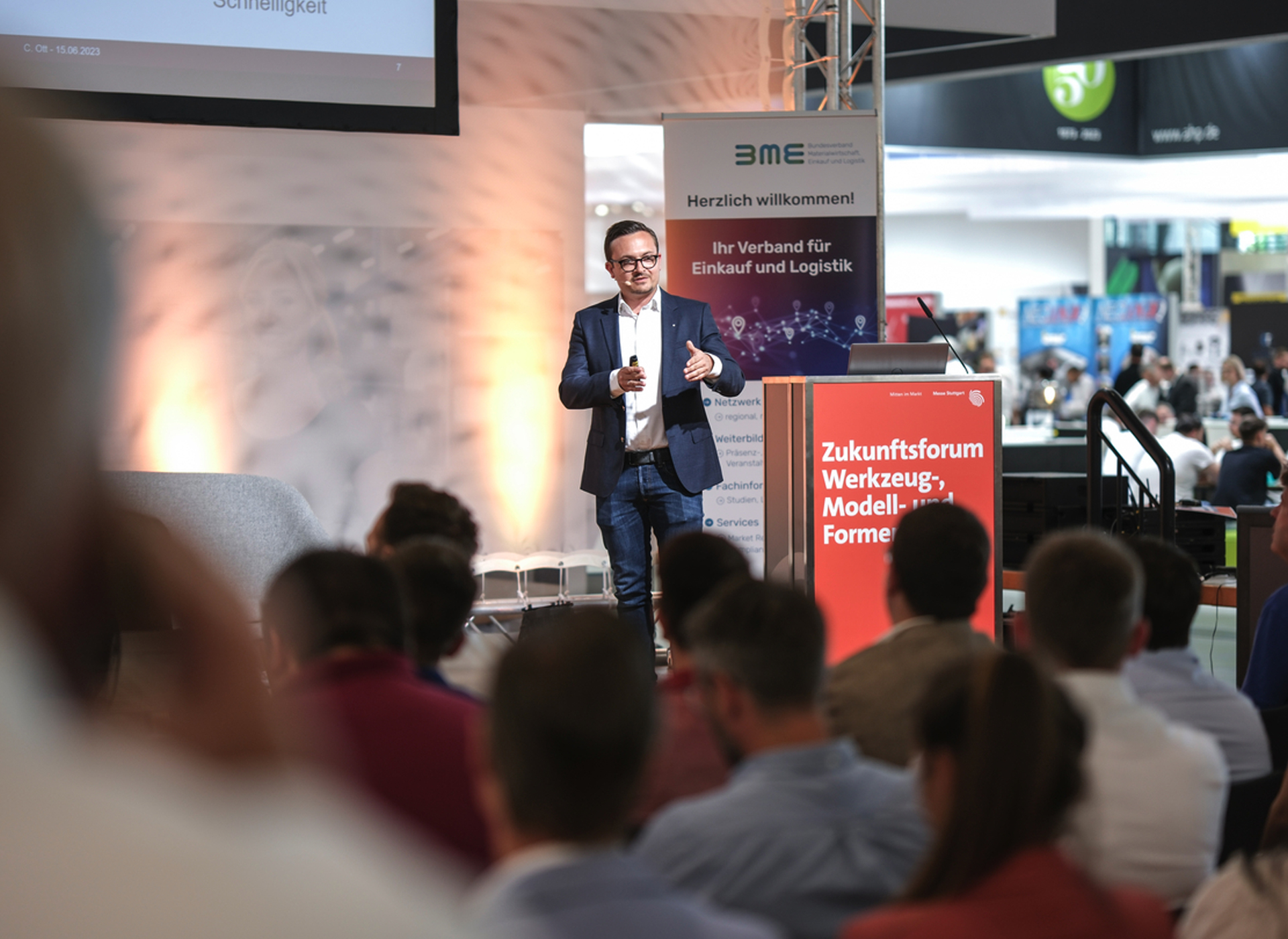Future Forum for Tool, Model and Mould Making
Lecture programme
16 June 2023
- 09:30 – Thought for the day – experts from "Marktspiegel Werkzeugbau"
- 10:15 – Apprentices – where do you find them? Azubi-Scout (Apprentice Scout) provides active support in recruiting young people
- 11:00 – Round Table "Shortage of skilled workers in the industry – intelligent responses to a great challenge"
- 12:30 – Lunch
- 13:00 – DiKliMa Project - digitalisation as an opportunity for innovative climate management and employee recruitment
- 13:45 – Podium discussion regarding trends and future prospects in tool construction and mould making
- 14:30 – Improved quality of moulded parts and processes through melt rotation in a hot runner manifold
- 15:15 – Impacts of material recycling in injection moulding based on different polymer types
Figures, data and specific action recommendations from and for the industry: the specialists from the expert team of the cooperative benchmark initiative will provide insights into the "inner workings" of the tool construction and mould making industry, describe strengths and weaknesses, and pass on action recommendations for improved competitiveness of companies.
It's not the demographic change that is causing problems for the tool and mould making industry in filling apprenticeship positions. Companies are often simply unable to find the right way to address young people. Consequently, a large of first-rate training places remain unfilled. The now relevant "Generation Z" represents both an opportunity and a challenge – Azubi-Scout actively supports companies in recruitment, on-boarding and apprentice retention.
Marc Metzner, Association of German Tool and Mould Makers (VDWF)
The shortage of skilled workers will soon become one of the most important limiting factors for the industry. During this Round Table recognised industry experts will show what the reasons for this shortage are and how this problem can be resolved, but also how companies can now prepare for this development and what means and opportunities are available to encourage more people to pursue a career in technical occupations.
Prof. Steffen Ritter, Reutlingen University; Prof. Thomas Seul, Association of German Tool and Mould Makers (VDWF)/Schmalkalden University; Johannes Zech, German Association of Pattern and Mould Making (BVMF); Alexander Bröckelmann, NachwuchsstiftungMaschinenbaugGmbH (Young Talent Foundation for Mechanical Engineering); Moderation: Richard Pergler
Increasing digitalisation, climate management and the growing shortage of skilled workers are posing serious challenges to companies in the mechanical engineering and plant construction industry. In order to help small and medium-sized companies in Baden-Württemberg to cope with these tasks, Nachwuchsstiftung Maschinenbau gGmbH (Young Talent Foundation for Mechanical Engineering) initiated the "DiKliMa" Project in cooperation with the Karlsruhe Institute of Technology (KIT). The focal point of the Project is an extensive qualification campaign for employees in order to qualify them in the topics of digitalisation, climate management and employee recruitment. The objectives of the Project are to present opportunities and help companies to maintain their innovative capacity and competitiveness. The Project partners also provide companies with support regarding employee recruitment and retention.
Alexander Bröckelmann, NachwuchsstiftungMaschinenbaugGmbH (Young Talent Foundation for Mechanical Engineering)
At the invitation of the German Engineering Federation (VDMA), first-class experts will discuss in this event the impacts of economic and technological trends in the most important customer industries, and challenges in the recruitment of skilled workers in regard to the future prospects for tool construction and mould making.
Markus Heseding, German Engineering Federation (VDMA); Lars Zimmermann, communication optimiser; Rainer Bartl, BarTecC.; Ulrich Kosanke, DIABA; Moderation: Alfred Graf Zedtwitz, German Engineering Federation (VDMA)
Melt rotation is not a universal remedy for balancing challenges – melt rotation as a means to optimise manifold balancing always comes "on top" of good tool design in the sense of precision adjustment. However, this factor should not be ignored when producing moulded parts with high demands in regard to size accuracy and tolerances which may be impaired by shearing-related filling problems. Melt rotation may provide a solution especially when the quality of moulded parts fluctuates substantially despite the perfect design and quality of multi-cavity moulds and a corresponding test for shearing points to this as the cause.
Volker Müller, Incoe
Recycling is becoming more important in the processing of plastic waste. Material recycling is important here in order to reduce production waste which occurs in companies. However, returning material waste to the production process increases the load on the molecular chains in plastic. This load leads to irreversible degradation. The effect of material recycling on mechanical, chemical, physical and optical changes in different polymer types will be described. The impacts will be described very quickly in a short programme of 12 reprocessing cycles.
Martin Wicker, Sebastian Limberg, Reutlingen University; Prof. Steffen Ritter
Lecture programme
| Contact Richard Pergler Tel.: +49 179 398 33 60 E-Mail: redaktion(at)perglermedia.de |




